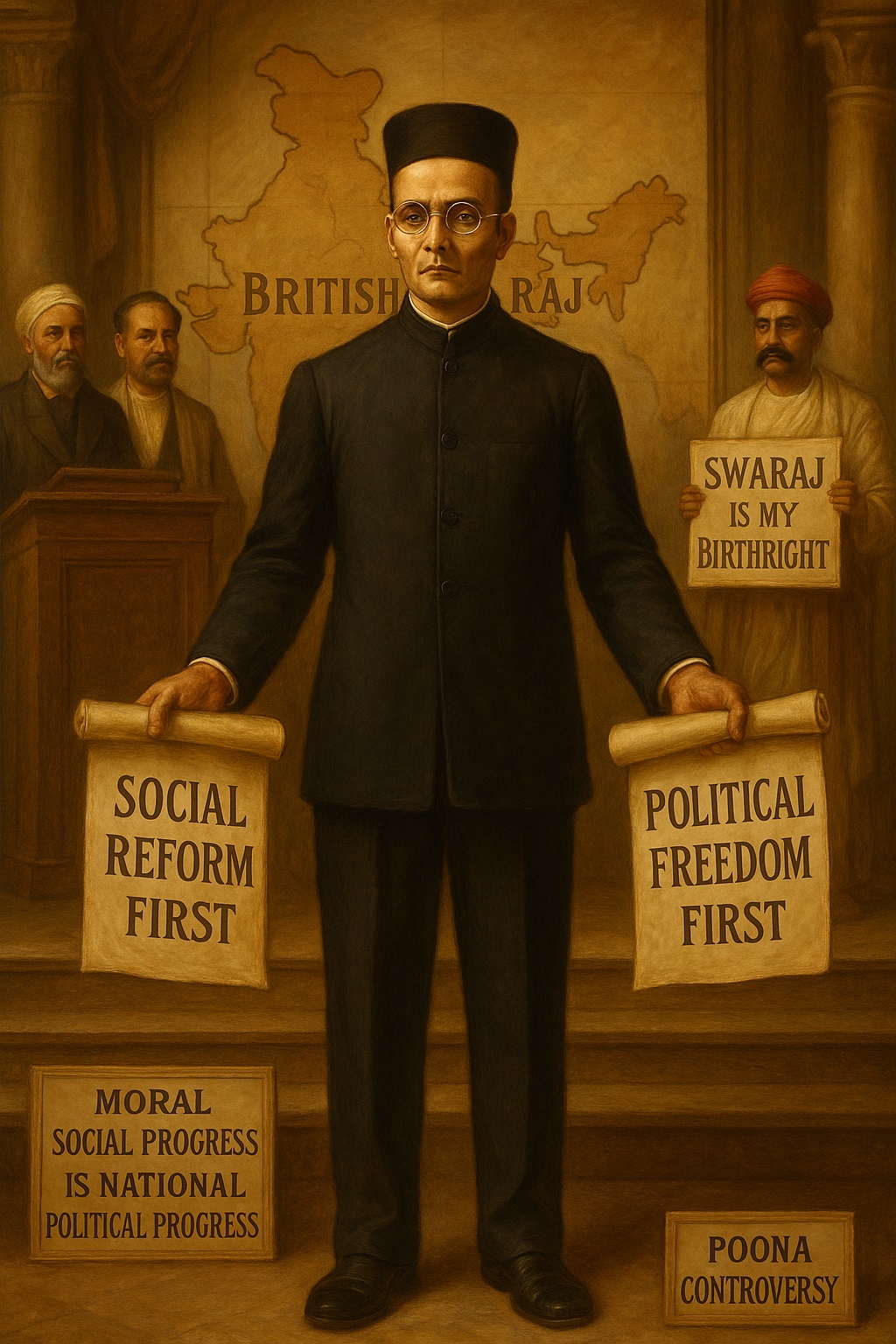Social-Reformist Dimension of Hindutva, Part 2
The discourse on social reforms in India remains a subject of debate even in the 21st century. The need for such reforms arose as a result of the interaction between the indigenous Hindu social structure and external influences, particularly under British rule. The colonial era introduced a new paradigm of social, political, and economic thought, leading to profound intellectual unrest among socially and politically conscious Indians.
The Genesis of Social Reforms in India
The introduction of Western education by the British in the 19th century had a transformative effect on Indian society, particularly on the Hindu community. It brought new ideas of individual liberty, human rights, rationalism, and secularism, encouraging intellectual engagement with social issues. However, social reform efforts gained momentum only in the mid-19th century, driven by individuals from the upper and privileged sections of society who were exposed to Western social and political thought.
Through their study of history and socio-political developments in the West, Indian reformers identified leadership qualities, systemic reforms, and a roadmap to restructure Indian society based on the principles of liberty, fraternity, equality, and justice. The primary concerns of early reformers included widow remarriage, the abolition of child marriage, women’s education, and the relaxation of caste-based restrictions. These efforts sought to challenge and critically examine prevailing social customs and traditions.
Role of Maharashtra in Social Reforms
Among the regions of India, Maharashtra played a particularly significant role in social reform movements. The region produced several eminent thinkers and activists whose ideas gained traction in the late 19th and early 20th centuries. With the rise of nationalism, their work became even more influential in shaping socio-political thought.
Notable figures in Maharashtra’s social reform movement included:
- Gopal Hari Deshmukh (Lokhitwadi): A leading literary advocate of social reform.
- Jyotiba Phule: A pioneer in education for lower castes and women’s rights.
- Vishnubuva Brahmachari: A social reformer who criticized caste-based discrimination.
- Ramkrishna Gopal Bhandarkar: A historian and social reformer advocating rationalism.
- Gopal Ganesh Agarkar: A radical reformer who emphasized rational thinking and education.
These reformers were instrumental in the establishment of various institutions and organizations aimed at social, political, and religious reforms. Maharashtra became known as a “breeding ground” for reformers due to the combination of intellectual rigor and practical implementation of their ideas.
Strategies and Impact of Reform Movements
The reformers adopted a two-pronged approach:
- Public denunciation of social evils such as caste discrimination, Sati, polygamy, and idolatry.
- Active public campaigns such as establishing schools, hospitals, orphanages, and famine relief initiatives.
These efforts created an atmosphere of social and political awareness, making Maharashtra a progressive hub for reforms. However, the influence of British culture and education also led to divisions. Traditionalist groups resisted changes, arguing that social reforms were a distraction from the more pressing issue of political independence.
The Poona Controversy: A Debate on Priorities
A critical debate within the reform movement was whether social reforms should precede political reforms or vice versa. This controversy was epitomized by the disagreement between Mahadev Govind Ranade and G.G. Agarkar on one side and Bal Gangadhar Tilak on the other.
- Ranade and Agarkar believed that social reforms were a moral necessity and fundamental to national progress.
- Tilak argued that foreign rule was the primary cause of India’s social grievances, and that political independence should take precedence.
This debate had significant implications for Indian nationalism. Opponents of social reforms contended that focusing on such issues weakened the independence movement. During the 1895 Indian National Congress (INC) session in Poona, Tilak successfully lobbied against the inclusion of social reform discussions, arguing that they would divide the national movement.
Vinayak Damodar Savarkar’s Perspective
Savarkar took a balanced approach to this debate. While he partly supported Tilak’s view that political dependence exacerbated social issues, he also emphasized the necessity of simultaneous social, economic, and political reforms. Savarkar believed that achieving independence requires a holistic transformation of society.
Final Thoughts
Social reform movements in India, particularly in Maharashtra, played a crucial role in shaping modern Indian society. While the debate between social and political priorities continues to this day, the efforts of reformers in the 19th and early 20th centuries laid the foundation for a more progressive and inclusive nation. Their legacy remains relevant in contemporary discussions on equality, justice, and social progress.
What are your thoughts on the legacy of social reform in India? How can we continue to build on the foundations laid by these early reformers? Share your insights in the comments below!
Sources:
ARP, Susmita. 2000. Kalapani. Zum Streit über die Zulässigkeit von Seereisen im kolonialzeitlichen Indien. Steiner Verlag: Stuttgart.
DIVEKAR, Vasudev Dattatraya. (Ed.) 1991. Social Reform Movements in India. A Historical Perspective. Popular Prakashan: Bombay (Mumbai).
NAG, Jamuna. 1988. Social Reform Movements in Nineteenth Century India. RBSA Publishers: Jaipur.
PHADTARE, T. C. 1975. Social and Political Thought of Shri V.D. Savarkar. A Thesis submitted to the Marathwada University for the Degree of Doctor of Philosophy. Unpublished: Aurangabad.


Leave a Reply